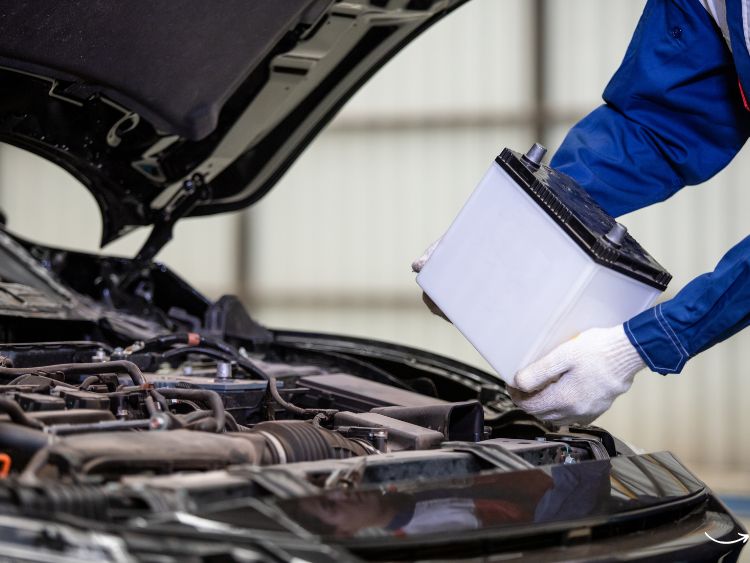Why Automotive Replacement Batteries Matter
Your car’s battery is its beating heart, powering everything from the ignition to the headlights. Without a healthy battery, even the most powerful engine is just a hunk of metal. Automotive replacement batteries are essential when your old one starts acting up. But how do you choose the right one? And how can you extend its life? Stick around, and we’ll cover all that and more.
What Are Automotive Replacement Batteries?
Automotive replacement batteries are rechargeable power sources designed to start your vehicle and support its electrical systems. When your car’s original battery dies or becomes unreliable, a replacement battery ensures you’re not left stranded on the road.
Signs You Need a New Battery
So, when do you know it’s time to swap out your car battery? Watch for these telltale signs:
- Slow Engine Crank: Your engine takes longer than usual to start.
- Dashboard Warning Light: The battery warning light illuminates on your dashboard.
- Swollen Battery Case: Heat can cause a battery case to swell, signaling internal damage.
- Low Battery Fluid Level: Visible through the transparent casing, this indicates depletion.
- Old Age: If your battery is more than three to five years old, it’s probably time for a replacement.
Types of Automotive Replacement Batteries
When it comes to car batteries, one size doesn’t fit all. Let’s break down the most common types:
1. Lead-Acid Batteries
These are the most common and affordable. They’re reliable but require regular maintenance to top up water levels.
2. Absorbent Glass Mat (AGM) Batteries
Perfect for vehicles with high electrical demands, AGM batteries are spill-proof and last longer than traditional lead-acid ones.
3. Lithium-Ion Batteries
Lightweight and efficient, these are typically used in electric and hybrid vehicles. They’re pricey but offer exceptional performance.
4. Enhanced Flooded Batteries (EFB)
An upgrade from traditional lead-acid batteries, EFBs are designed for start-stop technology in modern vehicles.
Choosing the Right Replacement Battery
Picking the right battery for your car isn’t as simple as grabbing the cheapest one off the shelf. Consider these factors:
- Size and Fit: Check your car’s manual for the correct battery group size.
- Reserve Capacity (RC): This determines how long the battery can power your car if the alternator fails.
- Cold Cranking Amps (CCA): Essential for starting your car in cold weather.
- Brand Reputation: Stick to trusted brands for reliability and warranty support.
How to Extend the Life of Your Automotive Replacement Battery
Taking care of your car battery can save you money and headaches down the road. Follow these tips:
- Keep It Clean: Remove corrosion from terminals using a baking soda solution.
- Drive Regularly: Short trips drain the battery without giving it enough time to recharge.
- Avoid Excessive Heat: Park in shaded areas to prevent overheating.
- Turn Off Electronics: Switch off headlights and the radio when the engine isn’t running.
Installing a New Battery: Step-by-Step
Replacing a car battery is simpler than you might think. Here’s a quick guide:
- Gather Tools: You’ll need gloves, safety glasses, a wrench, and a battery terminal cleaner.
- Disconnect the Old Battery: Remove the negative (-) cable first, then the positive (+).
- Remove the Battery: Loosen the hold-down clamp and lift the battery out.
- Install the New Battery: Place it in the tray, secure it with the clamp, and connect the positive cable first, followed by the negative.
- Test It: Start your car to ensure everything is functioning correctly.
FAQs
How long do automotive replacement batteries last?
Most car batteries last three to five years, but factors like climate and driving habits can impact their lifespan.
What’s the best type of battery for cold climates?
Batteries with high Cold Cranking Amps (CCA) are ideal for cold weather. AGM batteries are a great choice since they perform well in extreme temperatures.
Can I replace my car battery myself?
Absolutely! With basic tools and some safety precautions, replacing a car battery is a straightforward process.
How can I dispose of my old battery?
Take it to a local recycling center or an auto parts store that offers recycling services. Never throw a car battery in the trash—it’s hazardous to the environment.
What should I do if my new battery dies quickly?
Check your alternator, starter, or other electrical components for issues. If the battery is faulty, most reputable brands offer warranties for replacements.
Conclusion: Power Your Ride with Confidence
Automotive replacement batteries are the unsung heroes of the road, keeping your vehicle running smoothly. By understanding the types available, knowing when to replace them, and learning how to care for your battery, you’ll save money and avoid unnecessary stress.
Whether you’re battling a dead battery or planning ahead, this guide has you covered. Stay charged and stay on the move!
Authoritative Links for Further Reading
- www.consumerreports.org/car-maintenance/car-battery-buying-guide
- www.autobatteries.com/battery-basics
- www.batterycouncil.org/page/RecyclingBatteries

